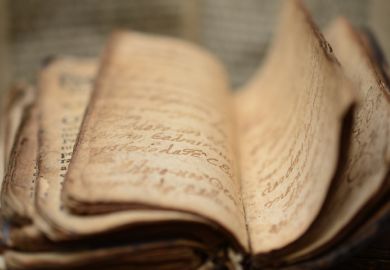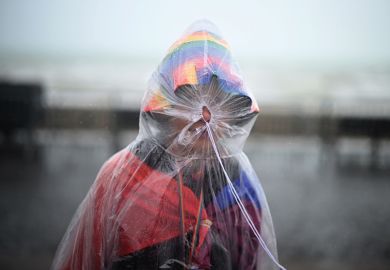What sort of books inspired you as a child?
I was an odd child. An early favourite was my mother’s dog-eared copy of P. V. Glob’s The Bog People, about preserved Iron Age bodies. In my early teens I became obsessed with Maud Pember Reeves’ Round about a Pound a Week, a detailed account of the everyday economic lives of women in Lambeth written for the Fabian Society. At school we used materials from the Schools Council History Project. I vividly remember one workbook about a missing student, Mark Pullen. It made me realise that a lot of history is about independent sleuthing; finding clues and trying to solve mysteries. I never shook that off, even when people started telling me that history was about men arguing with each other.
Your new book is ‘a history of the things we have used, recycled and refused to let go’. Which books first spurred you to investigate this?
The Little Old Woman Who Used Her Head is a collection by Hope Newell. It was first published in the US during the Depression, but reissued in 1973. I came across it as a child and it was one of the few fiction books I read. The stories centred on a daft old woman and her making-do: it was a confusing introduction to issues around waste and reuse. But the idea of Rummage emerged slowly, via my other work on the materiality of life, and also older books I use in my teaching – including Henry Mayhew’s flawed, enormous, brilliant London Labour and the London Poor.
You have written about some surprising topics: smells, neighbours and rubbish. Which books helped you to find ways to write about such ephemeral (and seemingly difficult to research) themes?
Writers of everyday and ephemeral themes need to present their material differently. I dig backwards through half a century in Rummage, so I became interested in ways of writing about time. Florian Illes’ 1913: The Year before the Storm was a good start. When I was younger, I read and reread Virginia Woolf’s Mrs Dalloway, and often think about it. It has a sense of movement through one day, a sense of the day’s structure and its immense richness. My approach to research is influenced by anthropologists and ethnographers – I’ll mention Jean and John Comaroff, Stephen Feld and Kirsten Hastrup.
Which books would you recommend on the emotional and ethical issues around recycling today?
Few consider the emotional issues; most are taken with top-down systems, not experience. Good books about the ethics of waste include William Rathje and Cullen Murphy’s Rubbish!: The Archaeology of Garbage; Gay Hawkins’ The Ethics of Waste: How We Relate to Rubbish; and Martin O’Brien’s A Crisis of Waste?: Understanding the Rubbish Society. Vibrant Matter: A Political Ecology of Things by Jane Bennett is also worth a read as it delves into the relationships between people and things.
What is the last book you gave as a gift, and to whom?
Alison Light’s Common People: The History of an English Family, to my mother. She’s undertaking genealogical researches and I’d been gripped by Light’s story.
What books do you have on your desk waiting to be read?
Sarah Wise’s The Italian Boy: Murder and Grave-Robbery in 1830s London – it’s the only one of hers I haven’t got to. John Boughton’s Municipal Dreams: The Rise and Fall of Council Housing has been waiting patiently. I’m also planning to read Martin Daunton’s Royal Mail: The Post Office since 1840 and reread work by E.P. Thompson, because my next book is about poison pen letters.
Emily Cockayne is senior lecturer in history at the University of East Anglia. Her latest book is Rummage: A History of the Things We Have Reused, Recycled and Refused to Let Go (Profile Books).
POSTSCRIPT:
Print headline: Shelf life: Emily Cockayne
Register to continue
Why register?
- Registration is free and only takes a moment
- Once registered, you can read 3 articles a month
- Sign up for our newsletter
Subscribe
Or subscribe for unlimited access to:
- Unlimited access to news, views, insights & reviews
- Digital editions
- Digital access to THE’s university and college rankings analysis
Already registered or a current subscriber? Login







